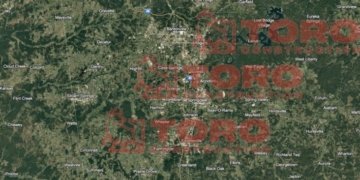27th June, 2025, New York
The Fourth of July air travel rush is almost here, and this year, it’s going to be a test of patience and planning.
With more than 3 million Americans expected to fly over the Independence Day weekend, experts from AirAdvisor are urging passengers to prepare for a fragmented experience. Some airports will handle the surge with grace. Others, plagued by long lines, poor punctuality, and overburdened schedules, may turn holiday plans into horror stories.
According to new analysis from AirAdvisor, the world’s leading air passenger rights company, not all airports, routes, or airlines will treat you equally. The difference between a smooth summer getaway and a ruined long weekend will come down to the hour you fly, the terminal you choose, and how willing you are to avoid the usual travel traps. AirAdvisor experts have analysed the latest FAA, TSA, and BTS data alongside real-time predictions to identify the best and worst airports, the riskiest airlines, the most congested routes, and actionable rebooking hacks that could save travelers time, stress, and money. (Please find the complete analysis with data & numbers in this doc)
Some airports will keep you moving. Others? Not so much.
If you’re flying out of Salt Lake City, Minneapolis-St. Paul, or Portland, you’re in luck. These three airports top the list for punctuality and passenger flow, with on-time performance rates consistently above 86%, even during peak periods.
But if you’re headed through Los Angeles (LAX), Miami (MIA), or Newark (EWR), expect a bumpier ride. These airports historically post delay rates above 25-30% during holiday windows, particularly between 2 p.m. and 6 p.m., when ground congestion and late-arriving aircraft create a domino effect.
Atlanta (ATL) is forecast to be the busiest airport in the U.S. this 4th of July week, serving over 2.5 million passengers, followed closely by Chicago O’Hare (ORD) and Dallas-Fort Worth (DFW). If you can avoid these hubs entirely, do.
Your airline choice matters, especially this Independence Day
If there’s ever a time to avoid deep-discount carriers, this is it. Spirit and Frontier are projected to have 6-8% cancellation rates this weekend, driven by overextended crew schedules and high aircraft utilization. If your flight is delayed, recovery options may be limited or nonexistent.
Delta, Alaska, and Southwest, on the other hand, will handle the rush better, thanks to stronger network resilience and lower historical cancellation rates in the 2-4% range.
Flying in the early morning (before 9 a.m.) remains your best bet. Flights departing early are nearly 25% more likely to leave on time than those after 2 p.m.
The busiest routes and smarter alternatives
Certain routes will bear the brunt of the travel surge. If you’re flying Atlanta to Orlando, Chicago to LAX, or Dallas to Denver, you’re in one of the three busiest corridors in the U.S., each expected to carry 400,000-500,000 passengers over the holiday.
But there are workarounds. Rerouting through Cincinnati, St. Louis, or Kansas City will reduce exposure to the worst hubs, with lower fares and better odds of an on-time departure.
Secondary airports are also quietly thriving. Long Beach, Oakland, and Burbank are seeing 5-10% lower traffic than expected this summer, and all report on-time rates above 85%. For travelers in Southern California or the Bay Area, they will offer a faster, calmer way to escape.
The delay season is here, and these airports will feel it first
If you’re flying this Fourth of July, be prepared for turbulence before you even board. Based on projections from TSA screenings, BTS historical data, and real-time patterns from FlightRadar24, AirAdvisor projects this year’s delay rate is expected to hover between 10-15%, affecting as many as 75,000 flights across the holiday week.
Certain airports are particularly exposed. Atlanta (ATL) and Chicago O’Hare (ORD), already among the busiest hubs in the country, are projected to see delay rates as high as 30-40%, up from 25% last year. ORD alone logged a 35% delay rate on July 4th in 2024, and this year’s congestion forecasts suggest it may surpass that. Los Angeles (LAX) also joins the high-risk list, particularly during the afternoon rush.
Cancellations are climbing, too. 5-7% of flights may be cancelled, especially on Spirit and Frontier, which are already operating with limited slack. Miami (MIA) is one of the top trouble spots, with tropical systems pushing its projected cancellation rate to 7%, potentially affecting another 10,000 flyers.
Know what you’re owed and how to claim it
Delays and cancellations are frustrating, but they don’t leave passengers powerless. Under U.S. Department of Transportation (DOT) rules, airlines must offer a full refund if your flight is cancelled and you choose not to rebook. But that’s just the baseline. If you’re stranded overnight, many airlines are also required, though not always eager, to provide meal vouchers, hotel accommodations, and ground transportation.
On international routes, especially those arriving from Europe or operated by EU carriers, EU261 protections WILL apply. That means travelers will be entitled to up to $660 in compensation, depending on the length of the delay and distance flown.
And while apps are helpful, the best claims often happen when you escalate in writing. Keep receipts, document every delay, and ask explicitly for ‘duty of care’ when speaking with airline reps.
Anton Radchenko, Aviation Expert & Founder of AirAdvisor, said:
“This July 4th feels different, not just because of the volume, but because of how little margin there is across the system. Airlines are operating at near capacity, but support systems like ground handling, rebooking infrastructure, and crew availability haven’t scaled equally. That’s why minor weather in Denver or staffing in Miami can trigger a cascade that hits flights across the country.
What travelers don’t realise is that most disruption now comes down to timing and rerouting resilience. Book flights that depart before 9 a.m., yes, but also choose airlines that give you more rebooking options on the same day. If your carrier only flies that route once daily, you’re stuck until tomorrow. If your app doesn’t show same-day rebooking, call the airline and ask for alliance routing; most travelers don’t know they can fly partner airlines at no extra cost in a disruption.
Most travelers forget the power of proactive planning. Before you fly, take screenshots of your flight itinerary, download your airline’s contract of carriage, and research the airline’s rebooking policy because not all carriers handle delays equally. If you’re stranded, head to the gate counter and the airline’s main ticketing desk simultaneously; whoever responds first gets you moving. And always travel with a printed version of your rights. In a disruption, being the best-prepared passenger often means being the first rebooked.”
About AirAdvisor
AirAdvisor is a global company that helps air passengers claim compensation for delayed, cancelled, or overbooked flights. With legal expertise and digital tools, the platform supports travellers in asserting their rights across the US, UK, EU, and beyond. So far, they’ve helped more than half a million passengers get compensated for flight disruptions worldwide.
More info: https://airadvisor.com/en
225 Dyer St Providence, RI 02903, USA
Everest PR is a global PR company, driven by a genuine passion to revolutionise the media space through data-backed stories that add real value to the audience.
This release was published on openPR.


















